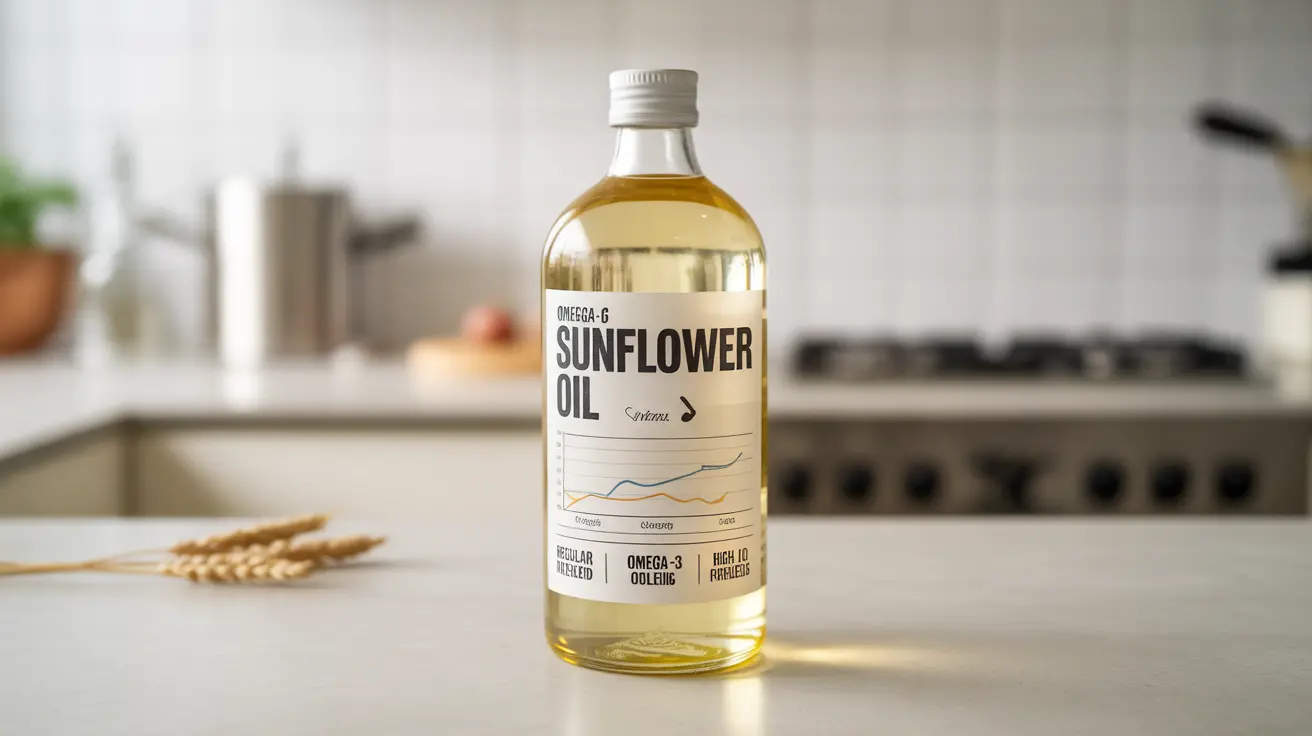Sunflower oil is a common cooking oil found in many kitchens, but questions about its health effects have sparked considerable debate. Understanding the benefits and potential risks of sunflower oil is crucial for making informed dietary choices. This comprehensive review examines the scientific evidence behind sunflower oil's impact on health.
Understanding Sunflower Oil Composition
Sunflower oil primarily consists of polyunsaturated fatty acids (PUFAs), with a particularly high concentration of omega-6 fatty acids. While these essential fatty acids play vital roles in body functions, the ratio of omega-6 to omega-3 fatty acids in our diet has become a topic of interest among health researchers.
Types of Sunflower Oil and Their Uses
Regular Sunflower Oil
Standard sunflower oil contains approximately 60-70% linoleic acid (omega-6) and about 20% oleic acid. This composition makes it suitable for cooking but has raised concerns about its inflammatory potential when consumed in large quantities.
High-Oleic Sunflower Oil
This modified variety contains up to 80% oleic acid and lower levels of omega-6 fatty acids. It offers greater stability for cooking and may provide different health benefits compared to regular sunflower oil.
Health Implications of Sunflower Oil Consumption
Inflammatory Response
The high omega-6 content in regular sunflower oil has led to discussions about its potential inflammatory effects. However, the relationship between omega-6 fatty acids and inflammation is complex and depends on various factors, including overall diet composition and individual health status.
Cardiovascular Health
Research suggests that replacing saturated fats with the unsaturated fats found in sunflower oil may help support heart health. However, the type of sunflower oil and cooking methods used can influence these effects.
Blood Sugar Management
Studies indicate that moderate consumption of sunflower oil, particularly high-oleic varieties, may not negatively impact blood sugar control. However, individuals with diabetes should monitor their intake and consult healthcare providers about optimal cooking oil choices.
Safe Usage and Alternatives
When using sunflower oil, consider these factors:
- Smoke point and cooking temperature
- Storage conditions to prevent rancidity
- Portion control and overall dietary balance
- Alternative cooking oils for rotation
Frequently Asked Questions
Is sunflower oil bad for you because of its high omega-6 fatty acid content?
While sunflower oil is high in omega-6 fatty acids, moderate consumption as part of a balanced diet isn't necessarily harmful. The key is maintaining an appropriate omega-6 to omega-3 ratio through varied dietary sources.
Can consuming too much sunflower oil cause inflammation or increase the risk of chronic diseases?
Excessive consumption of any oil, including sunflower oil, may contribute to inflammation. However, moderate use within a balanced diet is unlikely to significantly increase disease risk. The quality of the oil and overall dietary pattern are important factors.
What are the health differences between high oleic sunflower oil and regular sunflower oil?
High-oleic sunflower oil contains more monounsaturated fats and fewer omega-6 fatty acids than regular sunflower oil. This composition makes it more stable for cooking and potentially more beneficial for heart health.
How does sunflower oil affect blood sugar and heart health, especially in people with diabetes?
When used moderately, sunflower oil generally doesn't negatively impact blood sugar levels. Its unsaturated fat content may support heart health, but individuals with diabetes should monitor their overall fat intake and choose oils based on their healthcare provider's recommendations.
Are there safer and healthier alternatives to sunflower oil for cooking and frying?
Several alternatives to sunflower oil exist, including olive oil, avocado oil, and coconut oil. Each offers different benefits and is suitable for various cooking methods. The best choice depends on your specific health needs and cooking purposes.




